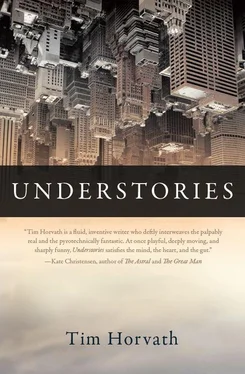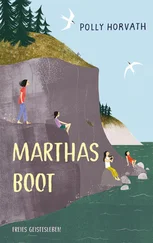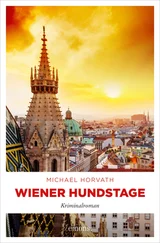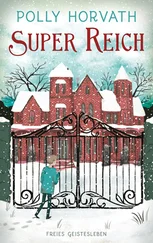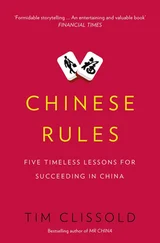Have you forgotten, for even an instant, as I must admit I had, that these stories were meant for my father, that he was listening all along? Indeed, he had passed away at some point during my reading of this last story, which thus never was told. Little in his features distinguished this latest placidity from that sleep that had become our ritual, our agreement. I found it hard to believe that there wouldn’t be another story tomorrow.
With some trepidation, that evening I phoned my mother to inform her of the news. I was almost relieved when her voice betrayed sorrow, perhaps a mourning for some ineradicable part of herself, though her words were no more than “Well, I’m deeply glad you could be there for him.”
The funeral was later that week. Aidan and his wife and the kids flew in, Gerry, and even Désirée made an appearance with her son — it was oddest to see her in black instead of her nurse’s attire. A chilly, rainy day, flood warnings. The flash storms were made more dramatic by the flatness all around; Aidan’s children would remember the Midwest as strung up by lightning throughout their lives. Afterward, everyone came over to my place, the profusion of voices and bodies like armor against the cataclysm without.
But afterward, left alone in my apartment, I felt as though something was still unresolved. It was selfish, I knew; my story had been prematurely cut off. I knew, at least by reputation, of a set of caves, nearly a day’s drive away, but I was the Director of Circulation, after all, and my father had just passed away, and so I could take some time off. Into the mouth of one of the caves I plunged, the copy of the book borne in one hand, flashlight in the other illuminating the walls. I was mindful of my father’s own words in Spelos —at the spot you needed light most in a cave, you could never quite get it: right where your head would eventually, no matter how careful and experienced you were, smack into an expected lintel of rock. I didn’t have a helmet, but the book made a good temporary stand-in.
The immediate sensation was coldness, a roaming cold that shook free of the walls and crept around, the kind you get standing shoulder-deep in a lake under passing clouds. There was a cave smell, too, like wet pavement, only slightly metallic. Once I had my bearings, I could understand “mouth” more viscerally; the interior was like the ominous pictures of periodontal disease that hang on dentists’ walls. Rock spears oozed like fleshy icicles, and the glazed walls glittered with what looked like sugar residue in a downed mug of coffee — what an onslaught of detail in those walls, and what a staggering thought that without illumination, they would remain forever invisible, inaccessible.
After several false leads, I found a crevice in an overhang. It seemed as though the likelihood of its being disturbed back here was slim. I wedged myself upward and thrust my body in the direction that my light revealed this slight opening. My shoulders found themselves between two walls, as though I were being held by the cave. This was mildly comforting, and I paused to savor it, but at once felt a twinge of danger — a few feet away, these same walls, angled slightly closer, could crush. I reached out and with a flick of the wrist sent the book off into the darkness, then retreated.
Checking it back into the library system in a few days would require little other than a passworded function override, and the records would, of course, be swept clean in a couple of weeks. If anyone ever sought it, it would be tagged MISSING and the usual searches would ensue; I’d go through the motions, use it as an opportunity to look for fresh mouse droppings. I had no idea what fate would befall the book itself. Would the temperature of the cave preserve its molecular structure like fine cheese, or would dampness eat away at it, inviting microorganisms to feast upon its pages, cannibalize descriptions of their own likenesses? Would an intrepid spelunker eventually stumble across it and send it back, or see it as a sign and take it to the next cave on his itinerary?
As I decided to depart, then, pitch-darkness at my back, I felt that whatever future lay before his book, it would be safer here, more permanent even than in the Library of Congress itself, more faithful to my father’s ultimate ambition. And surely it was self-delusion, but I’d driven all that day fueled by coffee and a vision: the words and the Ding an sich of the cave reaching out, embracing each other. In the embrace, whether eternal embalming or disintegration into cave sludge, I’d felt sure I would sense both what had created me and what would ultimately end me. En route, I’d pictured it cinematically, as sculpture, as jewelry; the reality was less dramatic, and now even that was gone.
For a moment, though, I risked flicking off the lamp. It was the sheerest darkness I could recall, and I instantly lost track of my limbs. I knew I needed to steer myself with arms extended; I knew the fingers of my left hand were still poking through the handle of the flashlight and my right palm was fully splayed. It was a directionless dark in which I could still distinguish degrees of cold but not myself. I kept expecting to smack into something, almost willing it to happen, because I’d lost all recollection of pain, of sensation. Not wishing to push my luck, I flicked the light back on, to exit — I’d gone only a yard or so.
I took in the cave one last time. Its shadows were restless, already arranging themselves into the stories I’d carry to Aidan’s kids, much like the ones I might one day tell my own. As I neared the mouth, children’s voices were audible just outside. Abruptly, I reentered at once light, warmth, clamor. At first, it was too much — I threw the hand with the lamp straight up to shield my eyes, but the other remained stubbornly outstretched as I pointed myself in the direction where I recalled the parking lot to be. I could feel my skin awakening to the moist air. With each step blinking my way back, I gradually lowered the lamp. It was tougher in daylight, but I wanted to see how long I could maintain that feeling of open, open arms.
Urban Planning: Case Study Number Two
All that about apples not falling far from the tree — shit, that. I know; I tumbled ass-first earthward and fell where I fell, and where I fell, I rolled, only then recognizing how rounded parts of me must have been. I wound up whole deserts from Morrisania, deserts that gleamed and those dull as obverse mirrors, deserts lush with indifference and misinformation. If sand can turn to glass without human ordination, surely that was what had happened here time and time again. I passed shards that had never been part of anything larger than themselves, whose only shot at survival was to stow away in passing flesh, lodging in soles and ankles that no longer could tell agony apart from ordinary touch.
But when at last I arrived in Delagotha, how I longed for those distances, their quaint assimilations of glass. Immediately past her gates, I was accosted by stacks of marketplaces where smaller marketplaces were for sale, themselves selling nothing other than still-smaller marketplaces. This regress wasn’t infinite — sure, it took many purchases, but eventually you’d arrive at the “atoms”—the goods — and you’d tremble at the prospect of dropping one and losing it forever.
All the while, getters, the closest thing the city had to beggars, moved hither and thither with the compulsive synchronicity of zebra finches or a crew team at break of day. They bounded off one another’s shoulders in a choreography of beguilingsignals. Finally, I just asked one what it all meant. It was not what was said, he insisted, turning his stubble-ridden face aside as if speaking to someone beyond me. No, it was what was on their breath when they spoke that delineated meaning. That depended largely on what they’d eaten most recently, which hinged, in turn, on what had tumbled their way — thrice-scorched crescent breads, globules of the sweet balm gondoliers slather on their cankers, the cankers themselves, and, for the luckiest only, the city’s famed tomatoes, in which succulent pulp and ceramic likeness lie spooning like lovers.
Читать дальше
